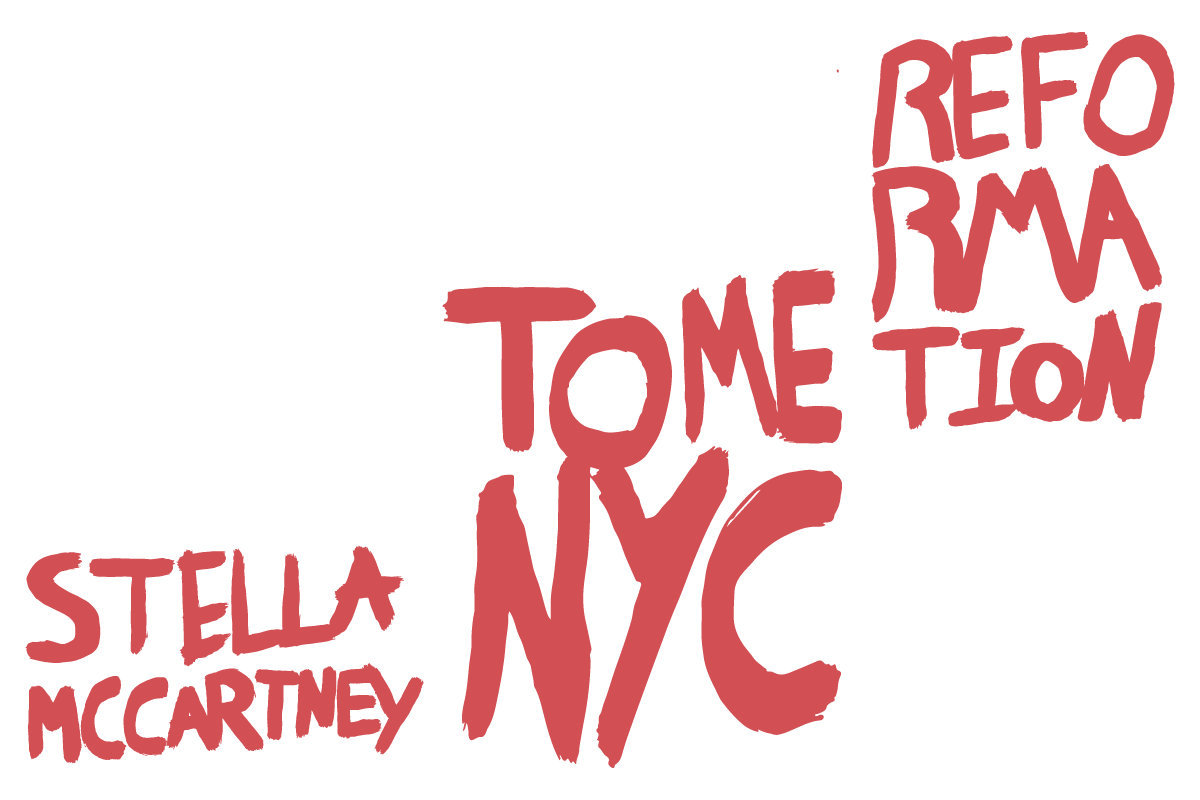You know the feeling. The awful pang of guilt as you purchase that cheap top you know you’ll only wear once.
With new trends being churned out what now feels like every week in the quick-fire system that is the fashion industry, we’re constantly buying new and more just to keep up with it. Unfortunately, the planet is having a pretty hard time keeping up with this extreme level of mass production too.
The more exclusive side of the fashion sphere has always taken heavy criticism for its notoriously unethical production methods, with things like the use of fur being hugely controversial and a major contributing factor to this opinion.
But, not all luxury brands reflect this ‘high fashion’ stereotype (thankfully). Take a look at the environmental crusaders championing sustainable fashion:
Stella McCartney
Queen of ethical fashion, Stella started up her label in 2001 with the vision that sustainability would be at its very core, and has since broken new ground in her creation of the first vegetarian luxury fashion brand.
Raised by two animal rights activists on a farm in East Sussex, Stella says she has ‘always understood nature’. Instead of using materials that are strenuous on the planet like the majority of brands of her calibre, she utilises recycled nylon and polyester, regenerated cashmere and recycled plastic to create her garment – and has strictly never used fur or leather. Her work doesn’t suffer in the name of sustainability either, as she continuously showcases flawless design and talent.
Despite being a pioneer in ethical luxury, Stella says that it ‘fascinates’ her that ‘everyone doesn’t look at the world this way – people are still so uncomfortable with people who look at things differently’ – but she understands all too well that the industry is a fragile one and can be a bit of a stickler when it comes to change.
She has seen incredible success with her label, which is worn by the likes of Meghan Markle, Karlie Kloss and Rihanna. Long may her reign continue!
Tome NYC
Established in 2011, Ryan Lobo and Ramon Martin’s label ‘Tome’ is committed to complete transparency and the use of 100% ethical supply chains in their brand.
Their ‘White Shirt Project’, launched in 2014, supports Katie Ford’s foundation ‘Freedom for All’ which fights fiercely against human trafficking, with the white shirt serving as a representation of a ‘clean slate’.
Lobo and Martin understand the need to safeguard those working in their factories and have prioritised reducing waste as much as possible through the use of renewable sources. They argue that sustainability in fashion ‘should not be a luxury, but a given’. They urge those looking to pursue a career in sustainable fashion to ‘never compromise on your principles’.
Reformation
Cult Instagrammable brand Reformation, created by CEO Yael Aflalo, say that they put sustainability ‘at the heart’ of everything they do, thinking about ‘the costs in creating fashion – not just the price tag’.
They invest in green building infrastructure to minimise waste as much as possible and provide on the job training for their employees, pay higher than standard minimum wage and provide health benefits – all as well as being one of the most popular brands on the gram. Win win!
They also send out quarterly sustainability reports to those signed up to their mailing list. This is particularly interesting as this information was obviously in demand from consumers; and it’s a step in the right direction to know that individuals are keen to become fully accountable for their fashion choices. What could be more rewarding than knowing that the clothes on your back have been created in a process that has done the least amount of damage possible to our precious planet?
The future of fashion heavily depends on much more extensive use of sustainable materials and ethics. I can only hope that other big brands follow suit and are inspired by the trailblazers paving the way for a brighter, greener and more responsible industry.
By Neave Meikle

